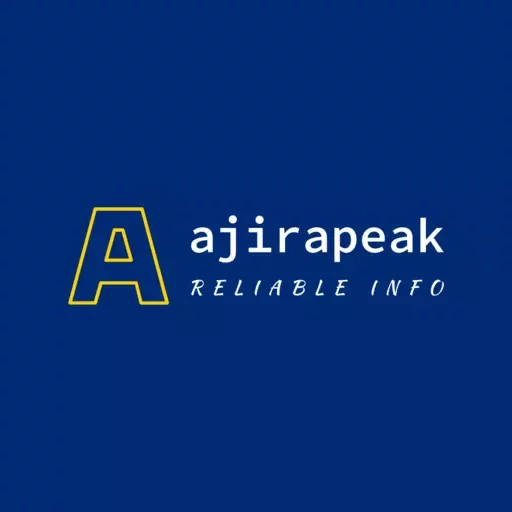Job Position Consultancy Service for Matching Burundian Curriculum with Digital Contents at Save the Children
CONSULTANCY SERVICE FOR MATCHING BURUNDIAN CURRICULLUM WITH DIGITAL CONTENTS
Background
Education is a crucial service in any country. Through education, a country not only gets the required human resources in a variety of economic and social sectors but also gets a literate and numerate population which is relatively easier to govern and implement government programmes. Quality in education learning outcomes remains as a problem in education in Somaliland. In adequate basic academic skills of teachers have contributed to the poor quality of education delivery. In fact, lack of teacher quality compels many parents to send their children to private school where they pay high fees. Quality requires continuous professional development measures to improve the academic and pedagogical skills of existing teachers, and to support the development of teachers throughout their careers.
Teacher education is the heart of any education system. It is the quality of teacher education that determines the quality of teacher trainees and, consequently, the quality of the graduates of the education system. Teachers determine the quality of appropriate knowledge, skills and attitudes acquired by the students in any education system. Indeed, it may be appropriate to surmise that an education system is as good as is the quality of its teachers.
One of the key determinants of an effective teaching force is the quality of teacher education curriculum offered to the teacher trainees. A weak teacher training education curriculum results in an ineffective teaching force while the converse is true for an effective force. Pre- and in-service training and on-going professional development are necessary to improve the quality of the teachers. The current modes of teacher training are not sufficient to guide the teachers towards a learner centered pedagogy that puts front and center the cognitive, social, emotional and physical needs of the learners. Therefore, opportunities for improving the teacher training modes and/or accessing short-term professional development courses will have to be explored in order to increase the quality of and access to education services.
One of the key education in emergency strategies to improve the quality of basic education is to increase the number of qualified teachers in primary schools. To address supply-side barriers related to the proportion of qualified teachers at primary school, activities under this strategy will focus on delivering teacher training based on education in emergency minimum standards and the new Burundian curriculum. The quality of teaching and learning in schools will be further supported through regular school monitoring exercises that will ensure adherence to teaching quality standards and provide ongoing mentoring support to teachers through monitoring activities conducted at school level.
The Project details.
The Kigoma Region is a relatively poor and largely rural in Western Tanzania that borders Burundi and Democratic Republic of Congo. As the Burundi refugee crisis reaches its 5th year Kigoma region is currently hosting around 280,000 registered (UNHCR, September 2020) refugees and asylum seekers (73% and 27% Congolese) with the majority seeking protection in three refugee camps (Nduta, Nyarugusu and Mtendeli). 56% of Tanzania’s refugee population are children (under 18). The gender split between children in the camps is equal (UNHCR, July 2020).
Restrictions on movements in the host communities under the encampment policy enforced in 2018, along with the closure of markets and restrictions on income generating activities (IGAs) declared in February 2019 across the three camps have made it increasingly difficult for vulnerable refugees to meet their basic needs with their self-reliance deteriorating (Inter Agency Child Protection Assessment IACPA, 2020). Both policies have severely hindered their ability to create sustainable livelihood opportunities, further compounding poverty at the household level and inducing negative coping mechanisms amongst communities such as early marriage, child labour, increased levels of violence and sexual-violence due to higher levels of psychosocial stress.
The project will target 8 primary schools and 2 Ideas Box Centres in Nduta and Nyarugusu refugee camps in the Kibondo and Kasulu Districts of Kigoma region Tanzania. This project will reach over 65,000 vulnerable refugees over two years. It will directly benefit over 32,645 Burundian and Congolese refugee boys and girls who are both in school and out of school (14,296 girls and 18,349 boys). The age range of these children is 6-17 years. This programme will also reach over 292 adults (aged 18 and above). These adults include both teachers, Idea Box facilitators and member of community based structures e.g. Parents and Teachers Association (122 women and 170 men). It will also provide indirect support to over 32,000 additional community members within the camps including 16,000 adults (parents and family members) and 16,000 children (family members).
The proposed project will tackle the above challenges by enhancing attendance to safe and quality education through scaling up existing interventions by Save the Children within existing formal schools and IBCs across Nyarugusu and Nduta camps. Save the Children with their technical and operational expertise, knowledge and experience within the camps will collaborate with ProFuturo who will provide digital resources such as computers, tablets and software, along with bespoke teacher training to create a holistic programme that empowers teachers, facilitates learning and enhances well-being for children within this protracted refugee situation. This programme aims to increase the life chances of vulnerable refugees and provide a safe and successful future.
3. Aim and objectives of the consultancy
Overall objective
The overall aim of the consultancy is to match the digital contents with Burundian curriculum.
The specific objectives will be to:
Review the Burundian curriculum to match a unified digital contents that is in line with current Burundian curriculum for grades 4-9.
Produce digital contents curriculum with a rationalised subject matter so that it is consistent with the requirements of the Burundian curriculum.
Produce the training curriculum with courses’ details which are logically consistent and progressively sequenced, and that there are no gaps or repetitions among subjects.
Arising from the above, the specific task required are detailed as:
Scope of work
• Carryout a desk review and to build an understanding of the current training programme. This should include a review of the in-service primary curriculum and the Diploma secondary pre-service in order to identify specific relevant strengths and areas for consideration in developing primary pre-service training curriculum.
• Review the key teacher training reports, curriculum documents, syllabi, teacher education policy and other innovation learning documents related to teachers.
• Lead and manage incentive teachers’ subject experts who will work on the development of the curriculum, and assign the writing tasks and deadlines using standard evaluation tools, including agreeing the required outputs and formats.
• Collate the contributions into one draft document (Unified curriculum) and together with subject specialist edit it for content, thematic and stylistic consistency.
• Conduct a curriculum validation workshop at which the draft unified pre-service curriculum document is reviewed by the coordination team, consortium partners and other education in emergency members.
• Revise the draft curriculum document with subject specialists and to incorporate the comments made at the validation workshop.
4. Proposed methodology of the matching exercise
• The consultant(s) should work closely with education coordinators and teachers
• He/she should work with other education stakeholders including the Education coordination members.
• Pre-test 1st draft of the developed curriculum contents
• The methodology undertaken during the validation should be highly participatory and to include group discussions and plenary sessions on all issues identified and discussed.
• xxx
5. Deliverables/outputs
The following outputs should be delivered
• A final approved digital content that align with Burundian curriculum for grades 4-9 including the training modules/Manuals.
• A technical report outlining activities undertaken during the consultancy. It should also indicate emerging insights and the rationale for choices made by consultants during execution of their tasks and recommendations for the implementation and action plan of the revised curriculum. Finally, it should detail the recommendations for the future direction of the training programme.
7. Timeframe
The consultancy shall be executed within a maximum of 21 days” commencing date on signed contract. The Proposal should include a detailed schedule. The following should be used as a guide.
S/N Activity No. days
1 Documentary review 2
2 Preparing an initial report and materials for the activity 2
3
3 Committee review
4 Integrating feedback on the initial report 1
5 Running matching activities and validating according to approved methodology and implementation plan. 5
6 Consolidating field digital contents with Burundian Curriculum grade 4-9 2
7 Curriculum Map preparation, introduction and simple report. 2
8 Committee review (1 days) 1
9 Integration of feedback on the Curriculum Map, introduction and report. 3
Total number of days 21 days
8. Management and supervision of consultancy
The consultant will report to Save the children with day-to-day supervision by Education coordinator and SCI Education Technical Specialist.
9. Consultancy experience and experts’ qualifications
The Lead consultant should have the following qualifications and experience:
• A degree/Diploma in education, specializing in curriculum development, teaching methodology, digital education or another closely related area.
• At least five years of relevant experience in Burundian curriculum and/or materials development for teacher training programs.
• Experience as team-leader in review activities related to curriculum development.
• Demonstrable experience in developing and implementing digital educational programs in the context of complex socio-cultural challenges.
• Ability to assess critically the review activities and results.
We work with children, communities and governments all over the world and we believe in the right person for the job regardless of where you come from and how you identify yourself. We need to keep children safe so our selection process reflects our commitment to ensuring that only those who are suitable to work with children are considered for these posts. All successful applicants will, therefore, be required to complete a Police Check and must sign onto our Child Safeguarding Policy and organizational Code of Conduct. SCI is an equal opportunity employer
Location: Kigoma, Tanzania, United Republic of
Department: Programme, Development and Quality
Type: Contingent
Schedule: Part-time
The deadline for submitting the application is 20 June 2021.
HOW TO APPLY: APPLY ONLINE VIA OFFICIAL WEBSITE


